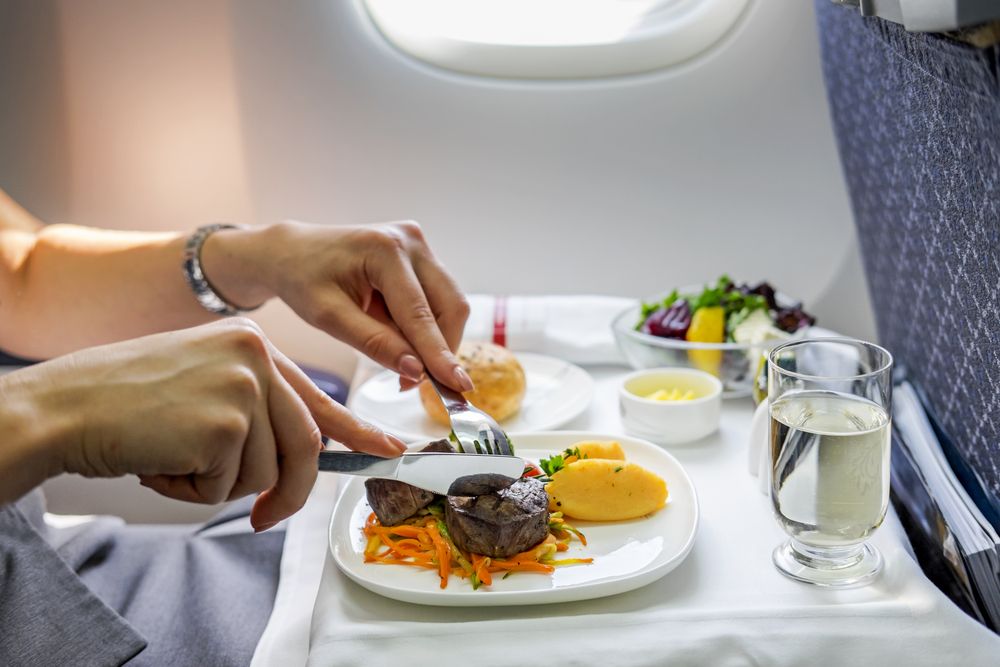'Tis the season for joy and embracing the holiday spirit often involves flying to meet loved ones or exploring new destinations. Amid the hustle of navigating airport security, hurrying to your gate, or figuring out parking, one critical aspect often gets overlooked: what you eat before flying.
Your pre-flight diet can profoundly impact your comfort during the journey. Unfortunately, this impact isn't always positive. Consuming certain foods can lead to uncomfortable situations like bloating, excessive gas, or frequent restroom visits while cruising at 30,000 feet - far from ideal for holiday travel.
While we can't manage the turbulence you might face, we can certainly assist in making your flight experience more comfortable by highlighting how specific food and beverage choices can cause discomfort mid-flight. So, buckle up and come along as we delve into the foods and drinks that, according to scientific insights, are best avoided before your next journey in the skies.
1) Garlic
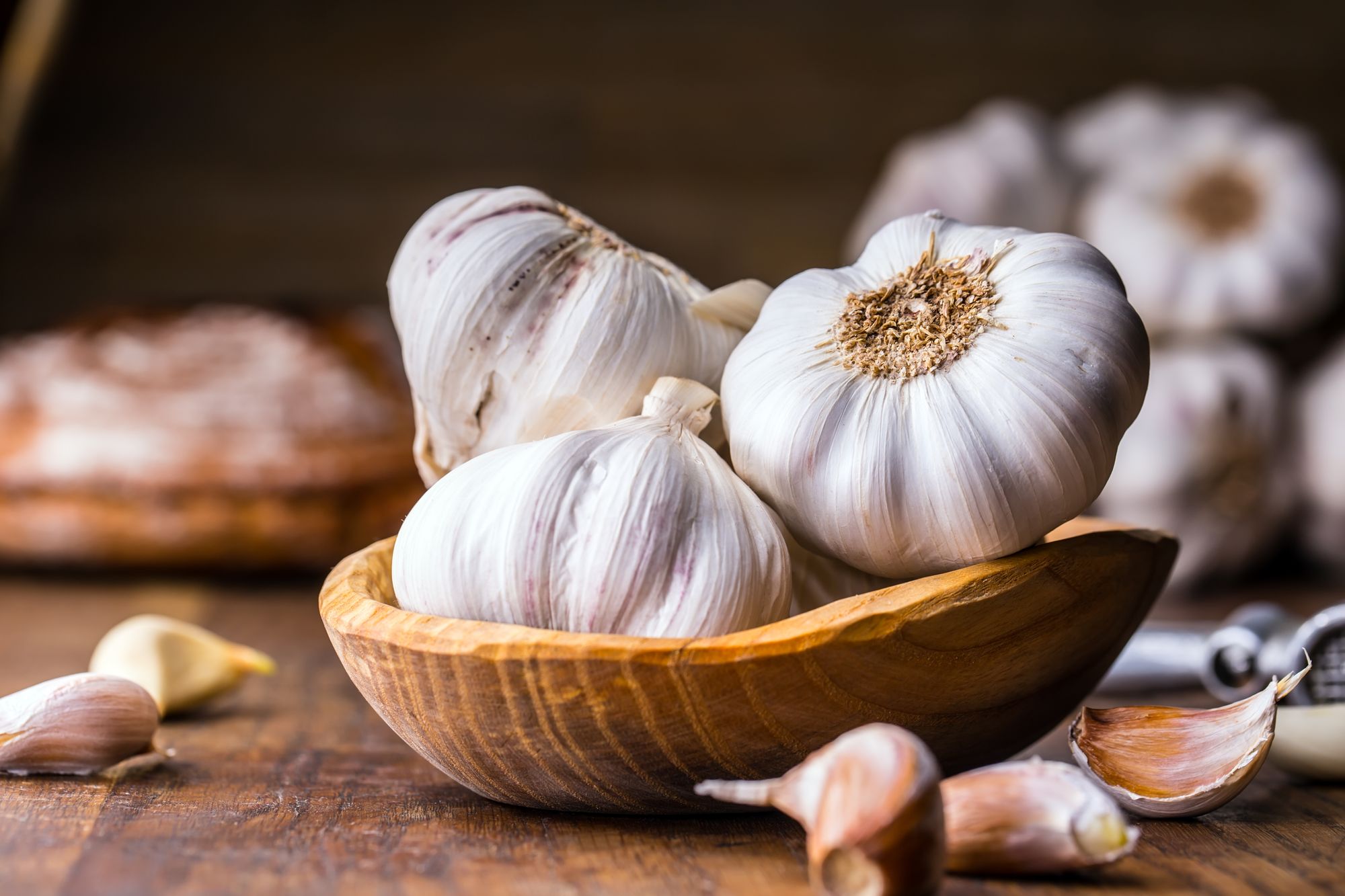
We've covered how flying can lead to bloating and discomfort due to pressure changes, and eating bloating-inducing foods can exacerbate this issue. Garlic is a prime example, rich in a fiber called fructans. Many individuals have mild fructan intolerances, which can cause bloating, stomach discomfort, and excess gas after consuming high-fructan foods. This intolerance is often undiagnosed and unknown, so many continue consuming such foods, unaware of their impact.
Moreover, consuming garlic before a flight can affect not just your comfort but also that of those seated near you, due to the notorious 'garlic breath.' Garlic contains sulfur compounds that become active when chewed, leading to a potent mouth odor. For everyone's comfort, it's advisable to avoid garlic before boarding a plane.
2) Onions
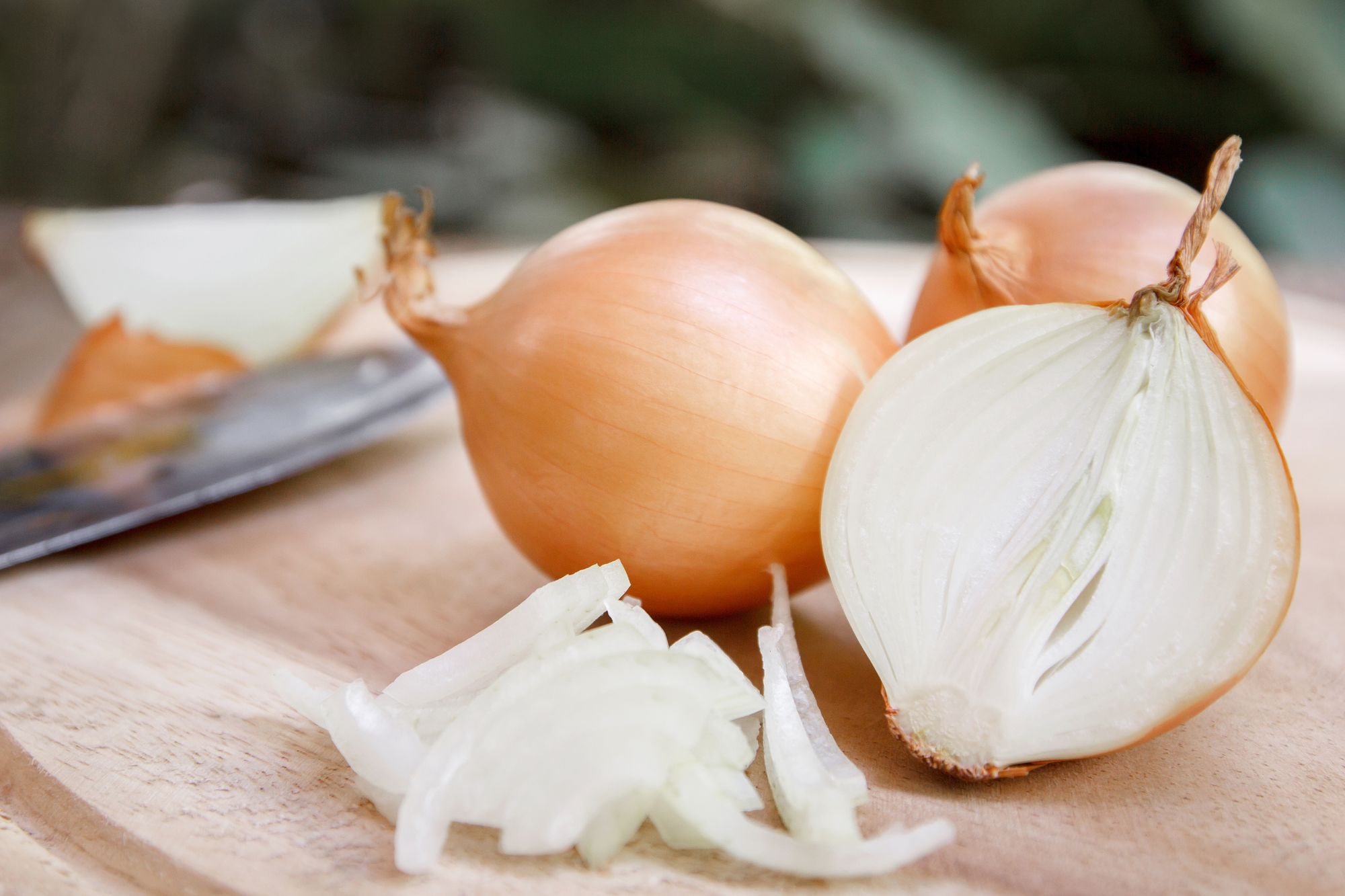
The rationale for steering clear of garlic before a flight also applies to onions.
Like garlic, onions are rich in fructans, the fiber that can trigger unrecognized intolerances in some individuals. Consuming onion-laden meals before a flight could lead to excess gas, an unwelcome companion in the confined space of an airplane.
Moreover, onions, much like garlic, can lead to undesirable breath. They contain numerous sulfur compounds that can result in a potent onion scent in your breath. Therefore, it's advisable to avoid onions before flying to ensure a more pleasant experience for both you and your fellow passengers.
3) Pears and Apples
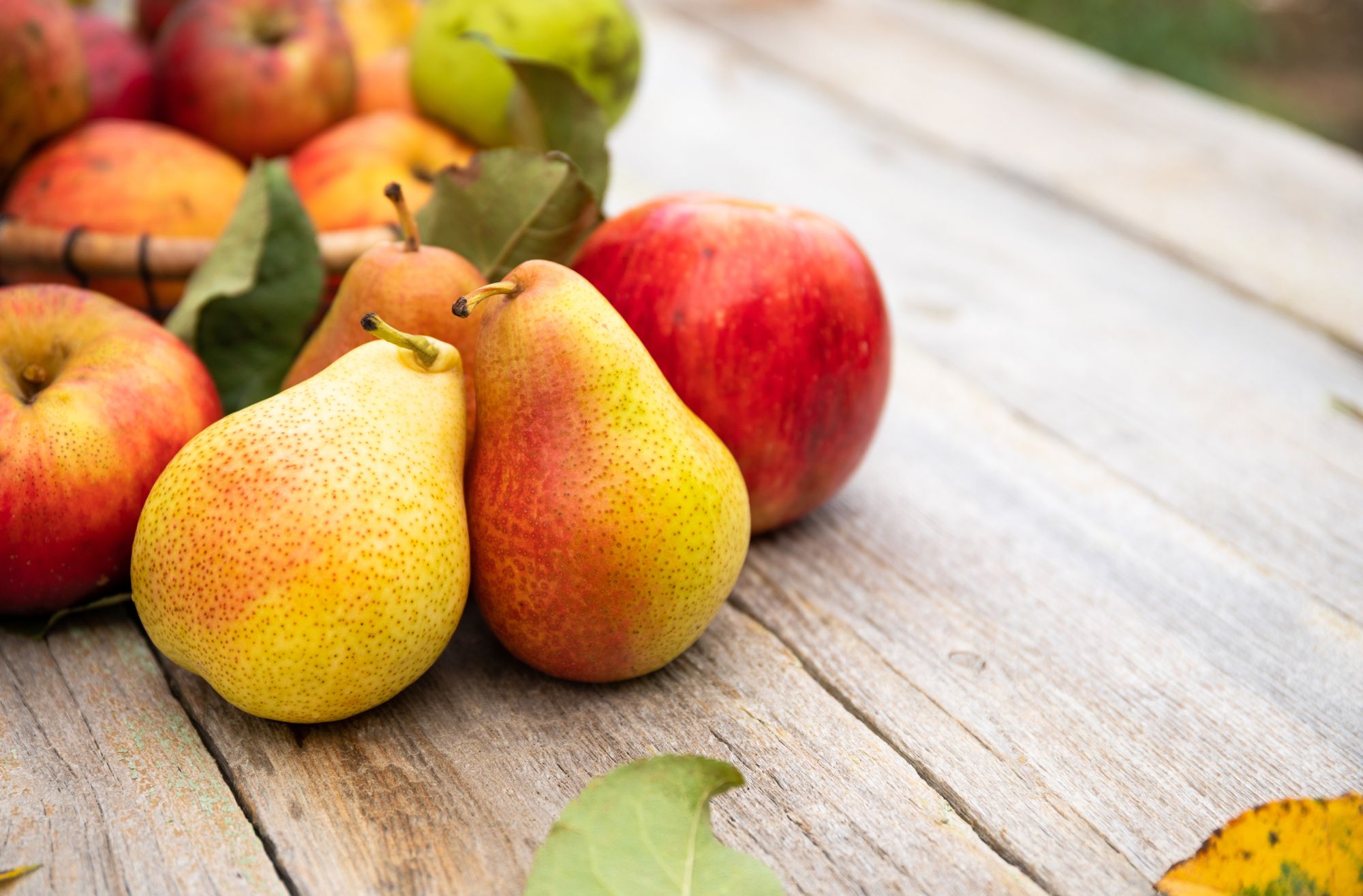
Apples and pears are excellent healthy snack options due to their fiber content, but they might not be the best choice for air travel.
These fruits, particularly pears and apples, are often associated with abdominal bloating and discomfort due to their high fructose content—a natural sugar. Similar to the intolerance some people have to fructans, which often goes unrecognized, fructose can also cause digestive issues. For many, consuming fructose leads to stomach pain and bloating, making these fruits less ideal for consumption before flying.
4) Gum
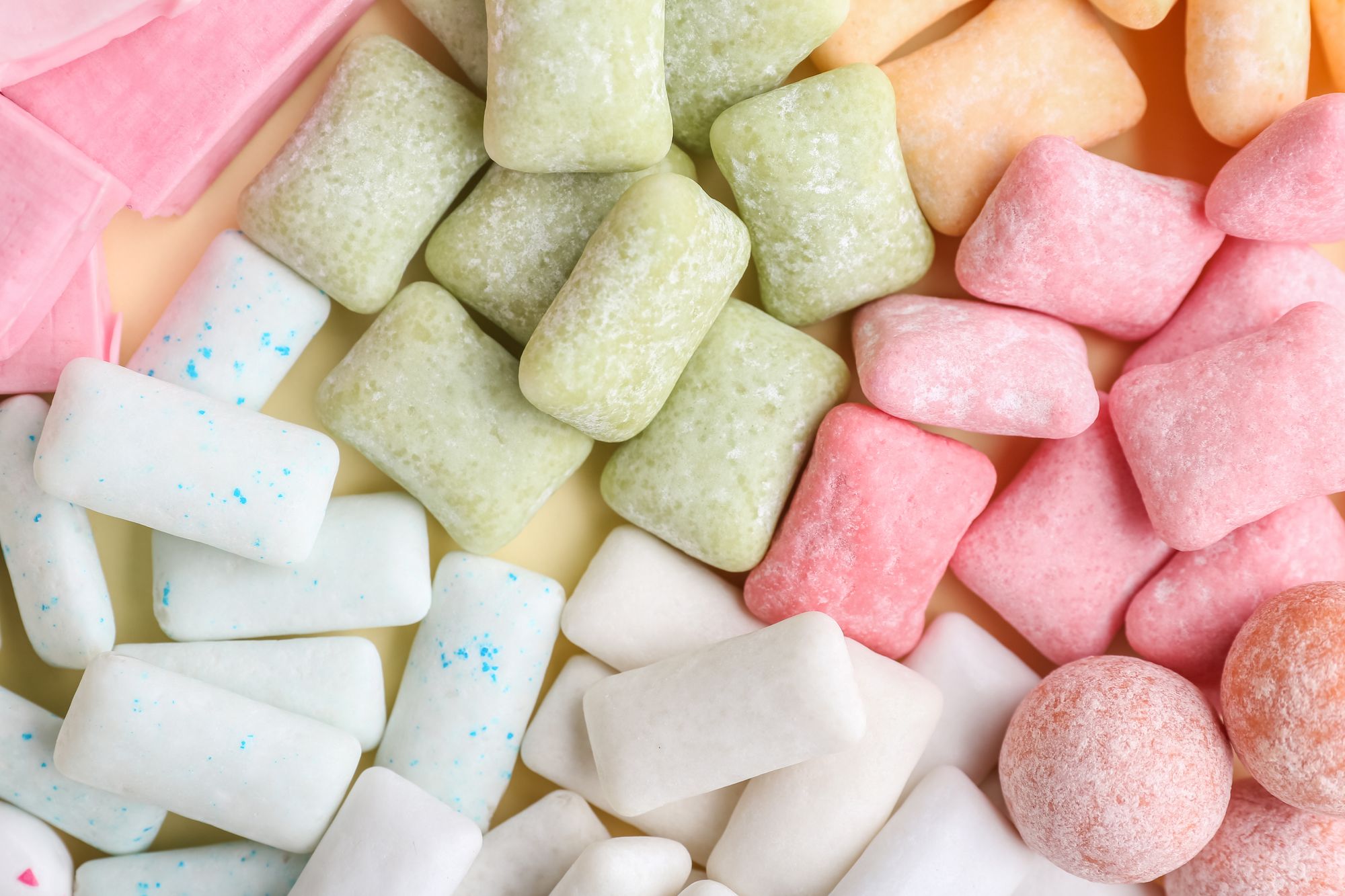
It's a common suggestion to chew gum to alleviate ear popping during flights, but this practice can also cause bloating and stomach discomfort while airborne.
Chewing gum leads to swallowing more air than usual, which can result in bloating. To reduce the likelihood of bloating and stomach pain, the Mayo Clinic, as reported by Science Daily, recommends avoiding chewing gum and consuming hard candies during flights.
5) Coffee
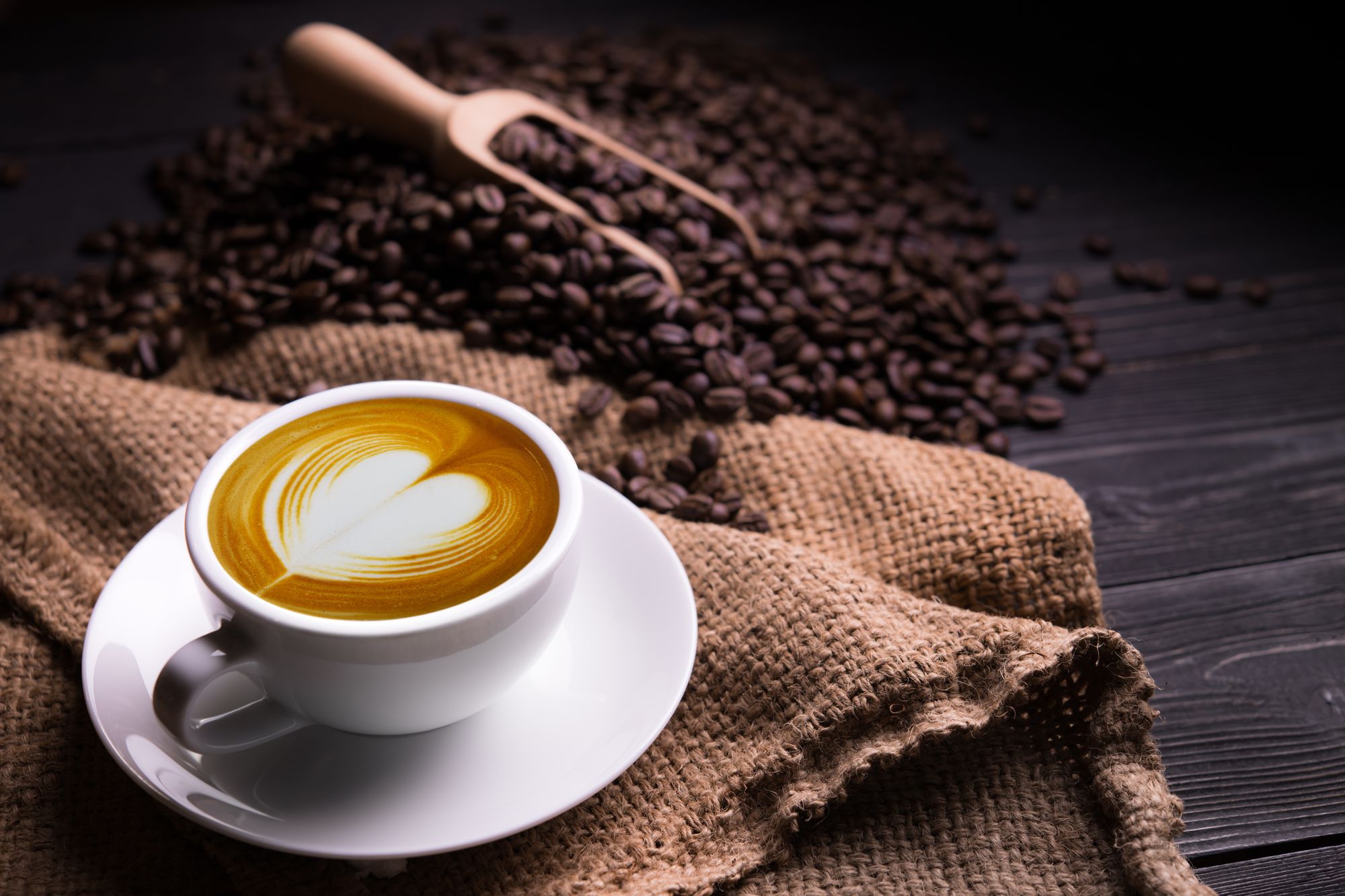
Consider the potential drawbacks before indulging in pre-flight coffee, as it might impact your comfort during the flight.
Firstly, consuming a significant amount of any liquid, including coffee, before flying inevitably increases the frequency of restroom visits. This can be particularly inconvenient on a plane, especially if you're seated away from the aisle.
Moreover, coffee is known for its laxative effect. It stimulates your colon and increases contractions, leading to a greater urgency to use the restroom. This situation can be especially awkward if you're in a window seat.
Additionally, for those sensitive to caffeine, coffee can exacerbate anxiety symptoms, such as jitteriness, nervousness, and an upset stomach. If you're already anxious about flying, coffee might intensify these feelings, making your flight experience less comfortable.
6) Alcohol

Enjoying a drink at the airport bar might seem like a relaxing way to spend a long layover, but it's important to be aware of the complications that can arise from consuming alcohol before your flight.
Alcohol acts as a diuretic, leading to more frequent urination and potential dehydration. Given that air travel can already contribute to dehydration, drinking alcohol could exacerbate this issue.
Additionally, the increased need to use the restroom due to alcohol consumption can be a nuisance, especially on a plane. It can be inconvenient for you and disruptive for your fellow passengers, particularly if you need to pass by them frequently.
Alcohol is also known to affect mental health, with a potential link to heightened feelings of anxiety and depression. This is partly due to its effect on lowering serotonin levels. If you're prone to nervousness or anxiety when flying, it's advisable to moderate your alcohol intake, as it could worsen these feelings, much like caffeine in coffee.
7) Fried Food
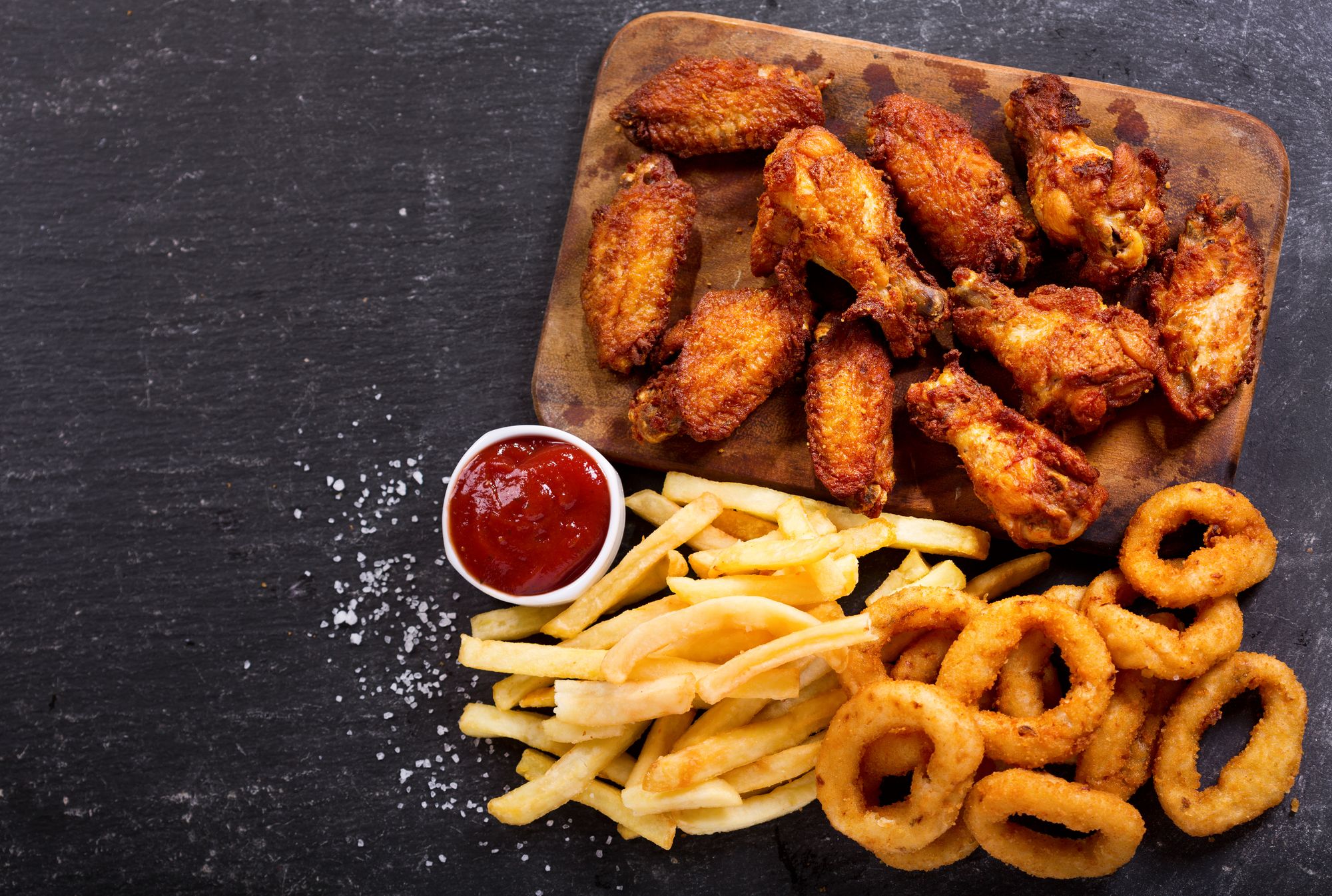
When waiting at the airport and considering an affordable meal before your flight, opting for chicken fingers and fries might seem appealing. However, there are several reasons to think twice about this choice.
Greasy foods are high in fat, and foods rich in fat take longer to digest compared to proteins and carbohydrates. This prolonged digestion of items like fries, chicken fingers, and onion rings can lead to bloating and potential stomach upset.
Sitting through a long flight with a bloated and uncomfortable stomach is already challenging, but the extended digestion time of high-fat foods can also increase the risk of heartburn or severe acid reflux, particularly in individuals who are susceptible to these conditions. Such discomfort could undoubtedly contribute to a stressful flight experience.
8) High-Sodium Foods
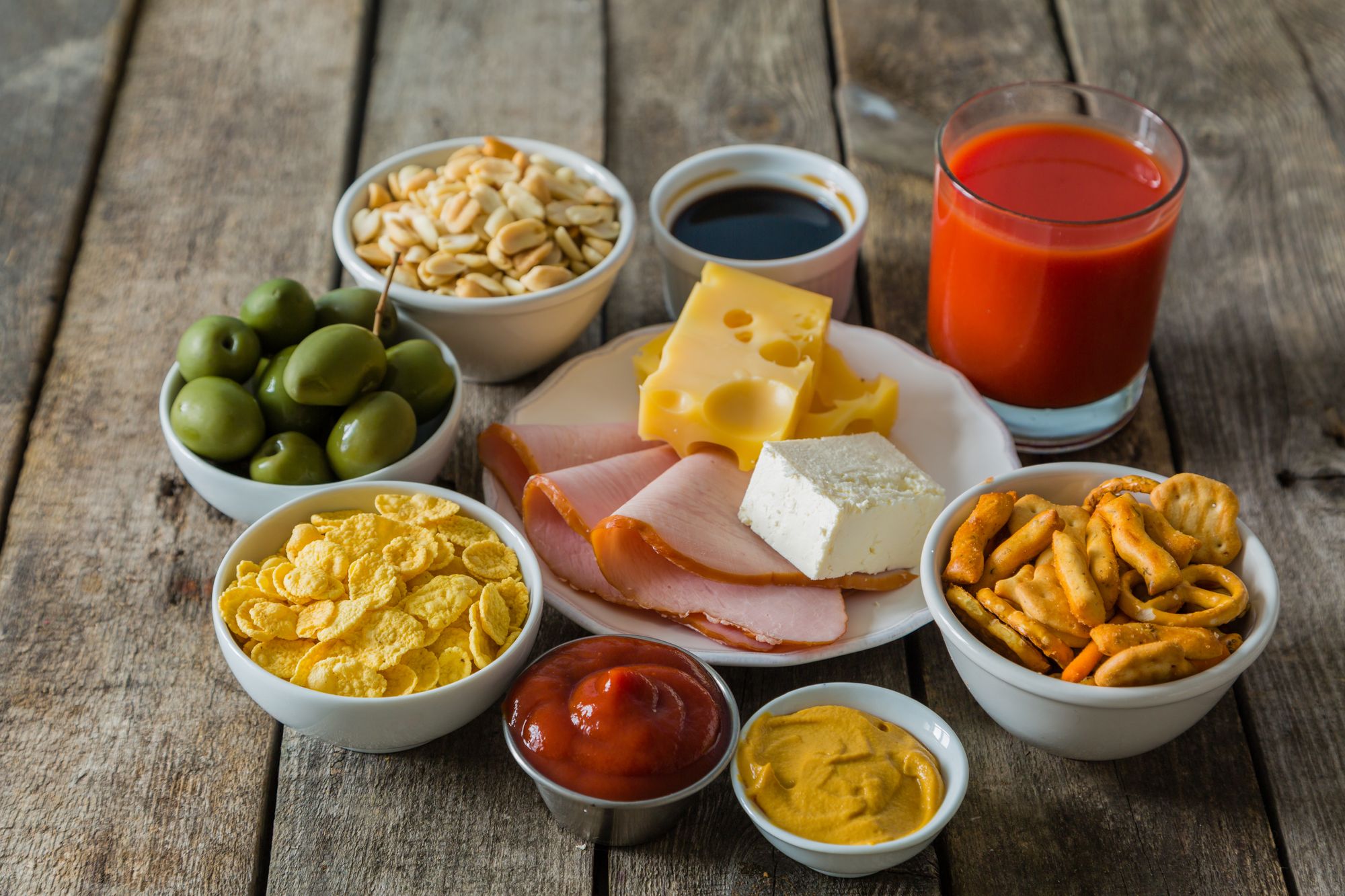
Whether you're enjoying a beer with chips and salsa before your flight or grabbing a bag of potato chips for a pre-flight snack, it's crucial to be mindful of your sodium intake.
The pressurized cabin environment of an airplane, combined with lower humidity, typically leads to dehydration during flights. Consuming high-sodium snacks can exacerbate this dehydration, creating an uncomfortable combination.
Moreover, air travel can cause your body to retain water due to pressure changes and prolonged sitting. High sodium levels in your diet can further contribute to this water retention, potentially leading to increased discomfort during your flight.
9) Broccoli
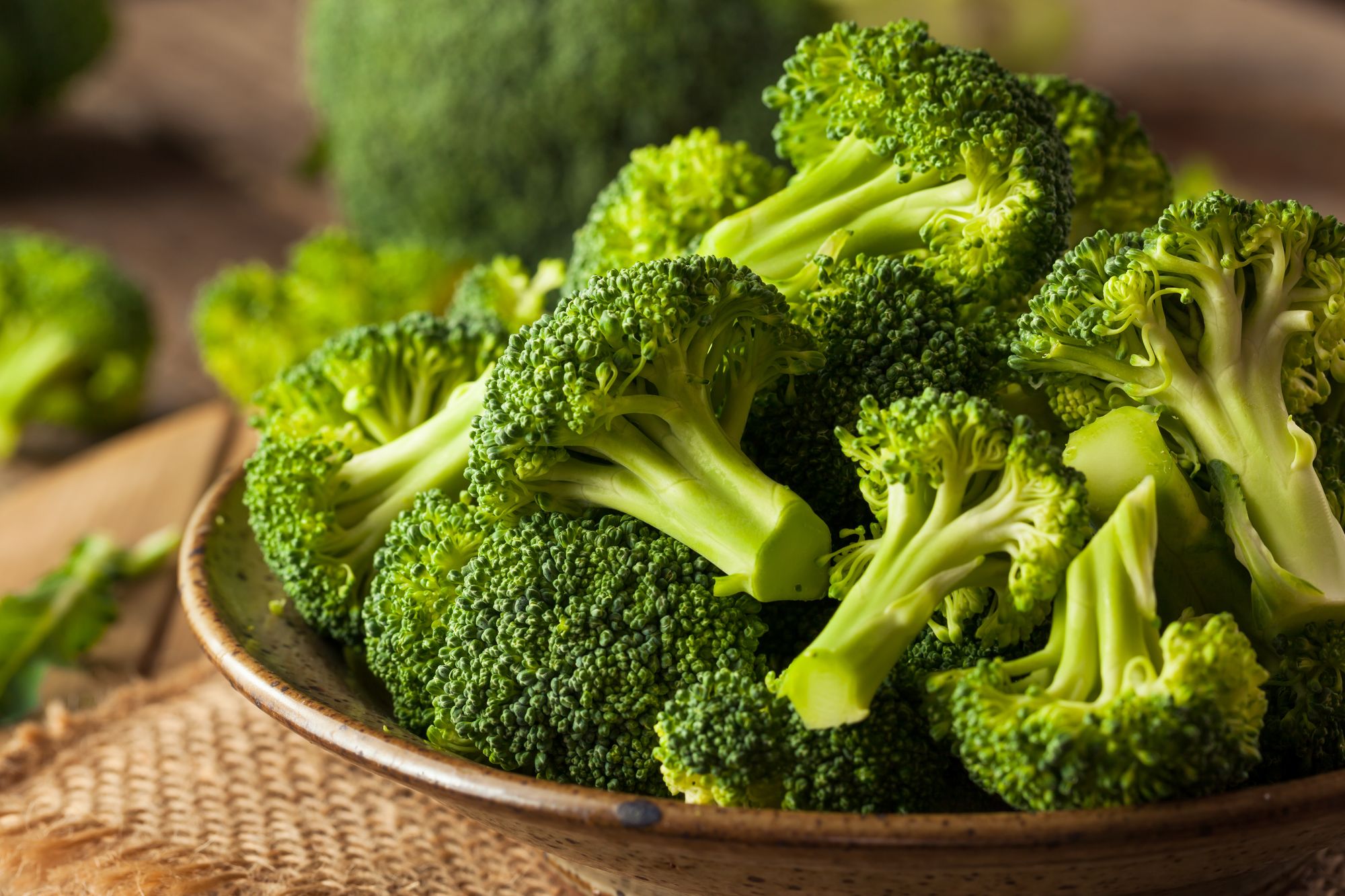
Cruciferous vegetables such as broccoli, kale, cabbage, and cauliflower are among the most nutritious foods you can consume. They're packed with antioxidants, essential vitamins, and notably high in fiber compared to many other vegetables.
While these attributes are beneficial for your overall health, it might be wise to forgo that side of broccoli with your airport meal. The high fiber content in cruciferous vegetables can lead to bloating and excess gas.
Feeling bloated during a flight is already a common issue, as drastic changes in altitude can cause bloating. Therefore, consuming broccoli and other high-fiber vegetables might exacerbate discomfort during air travel, potentially leading to a more painful experience.
10) Beans
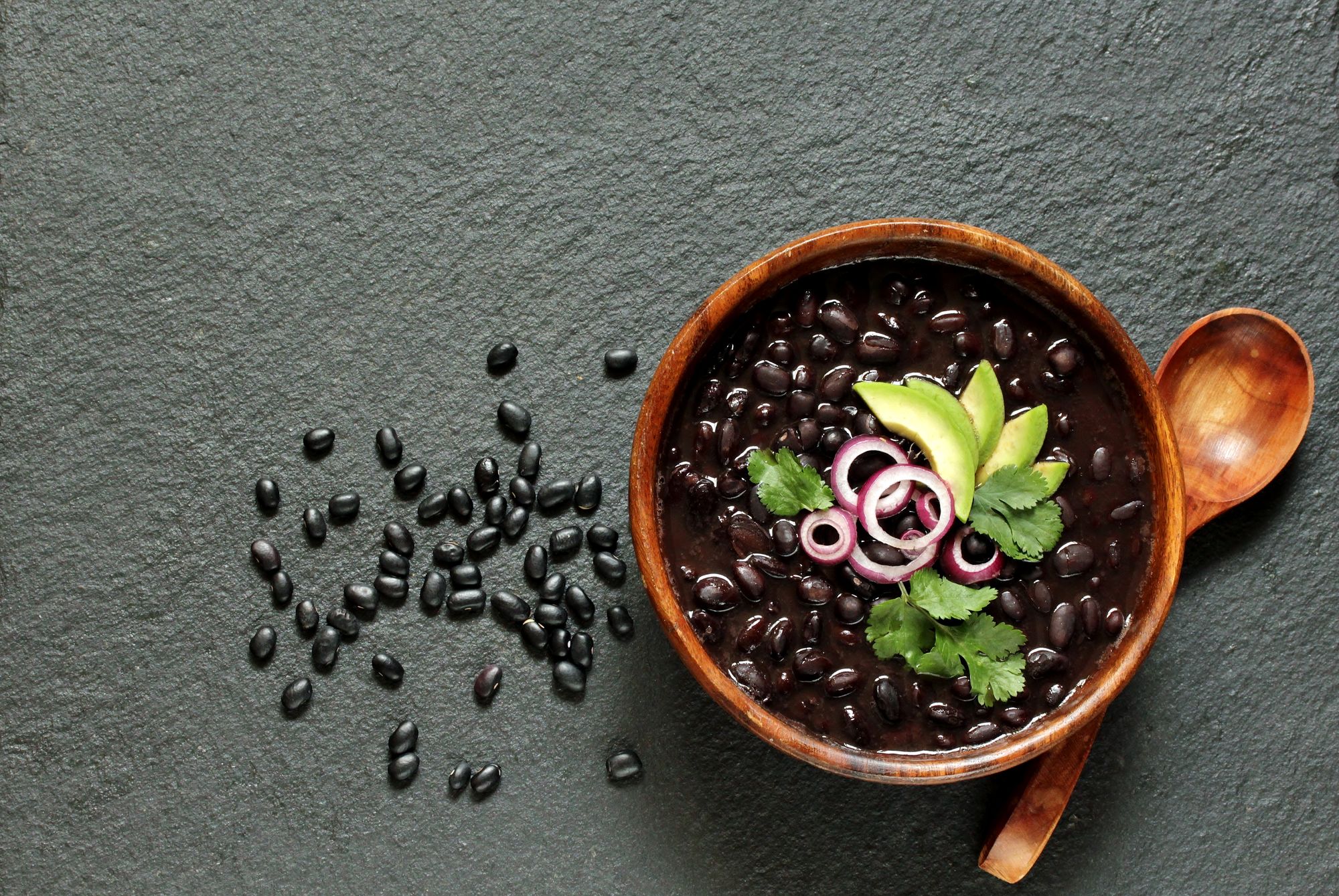
When flying, your body undergoes pressure changes, leading to the expansion of your intestines, as noted by the Cleveland Clinic. This can result in increased bloating and gas.
Beans, in particular, are not the best choice in this situation. Not only are they high in fiber, which is known to cause bloating, but they also contain raffinose—a type of carbohydrate that many people find difficult to digest. To avoid stomach discomfort during your flight, it's advisable to steer clear of beans prior to boarding.

